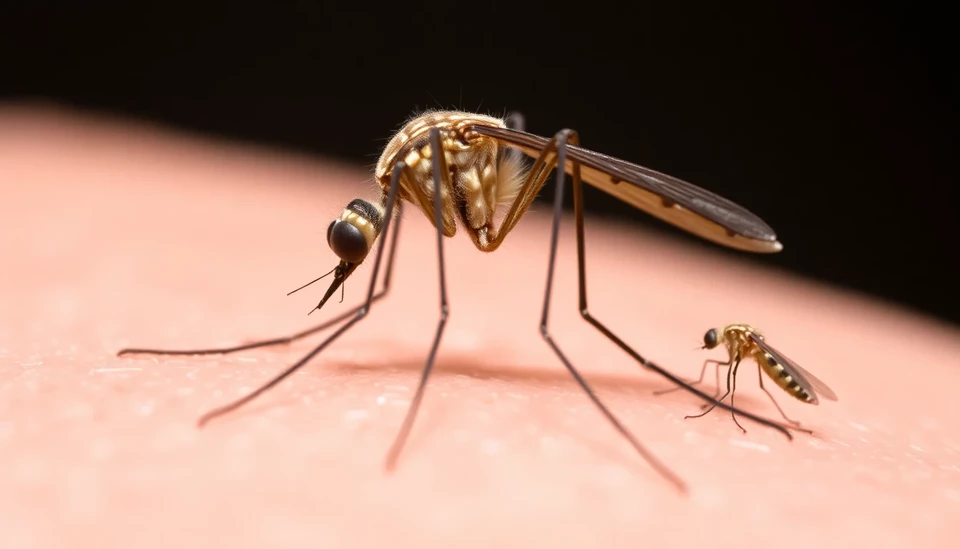
In a groundbreaking effort to tackle dengue fever, scientists are turning to an unexpected ally—genetically modified mosquitoes. This innovative strategy has gained traction in various parts of the world, particularly in regions plagued by the virus, such as Brazil and Singapore. As dengue fever cases continue to rise, researchers are racing against time to implement this novel solution, which offers a potentially effective method of controlling this debilitating disease.
In Brazil, where dengue fever has reached alarming levels, scientists are employing genetically altered Aedes aegypti mosquitoes, known for spreading dengue, Zika, and chikungunya viruses. The objective is to release these modified mosquitoes into the wild population, where they can mate with the natural Aedes mosquitoes. The offspring of these pairings would carry a genetic trait that ultimately reduces the population of the disease-carrying species. This method aims to create a self-limiting effect, substantially lowering the chances of viral transmission among humans.
Over in Singapore, health officials are also leveraging modified mosquitoes to combat not only dengue fever but also the associated risks of other mosquito-borne illnesses. The initiative has seen significant collaboration between local authorities and biotechnology firms, illustrating a growing global interest in genetic engineering as a viable solution to public health crises. As these modified mosquitoes are introduced into communities, monitoring and assessment of their impact on disease spread are closely scrutinized, ensuring both efficacy and safety for residents.
The arrival of genetically modified mosquitoes has not been without controversy. Critics have raised concerns about the ecological impact and the long-term effects on the mosquito population and surrounding ecosystems. Nevertheless, researchers emphasize that these initiatives are carefully designed to be environmentally controlled. Studies conducted in test sites show promising results, suggesting a substantial reduction in wild mosquito populations without causing harm to other species.
The broad acceptance of genetically engineered organisms faces hurdles, particularly in regions where public sentiment toward biotechnology is mixed. Education campaigns are essential to inform communities about the science behind the projects and the projected benefits that could protect them from potentially fatal mosquito-borne diseases.
Furthermore, international collaboration is essential in advancing this research and ensuring the technology is equitably distributed. Countries with the infrastructure and expertise to develop these solutions are now working with those that are heavily impacted by dengue, creating a globally networked response to the crisis.
The World Health Organization supports the use of innovative approaches such as these genetically modified mosquitoes as part of a comprehensive strategy to reduce mosquito populations and prevent the transmission of diseases. Efforts to combat dengue fever are more critical now than ever, particularly in the wake of climate change, which is anticipated to exacerbate mosquito populations and the spread of vector-borne diseases.
As the world watches on, the success of these initiatives could set a precedent for using genetic engineering to tackle other infectious diseases. The hope is that with continued research, investment, and public support, the future may one day see a significant decrease in dengue cases, bringing relief to millions across the globe.
As scientists and health officials forge ahead in this multifaceted battle against dengue fever, the reliance on manipulated mosquitoes could very well revolutionize how we address vector-borne diseases in an increasingly interconnected world.
#Dengue #GeneticallyModifiedMosquitoes #PublicHealth #Biotechnology #AedesAegypti #GlobalHealth #Innovation #DiseaseControl #Research
Author: Sophie Bennett




